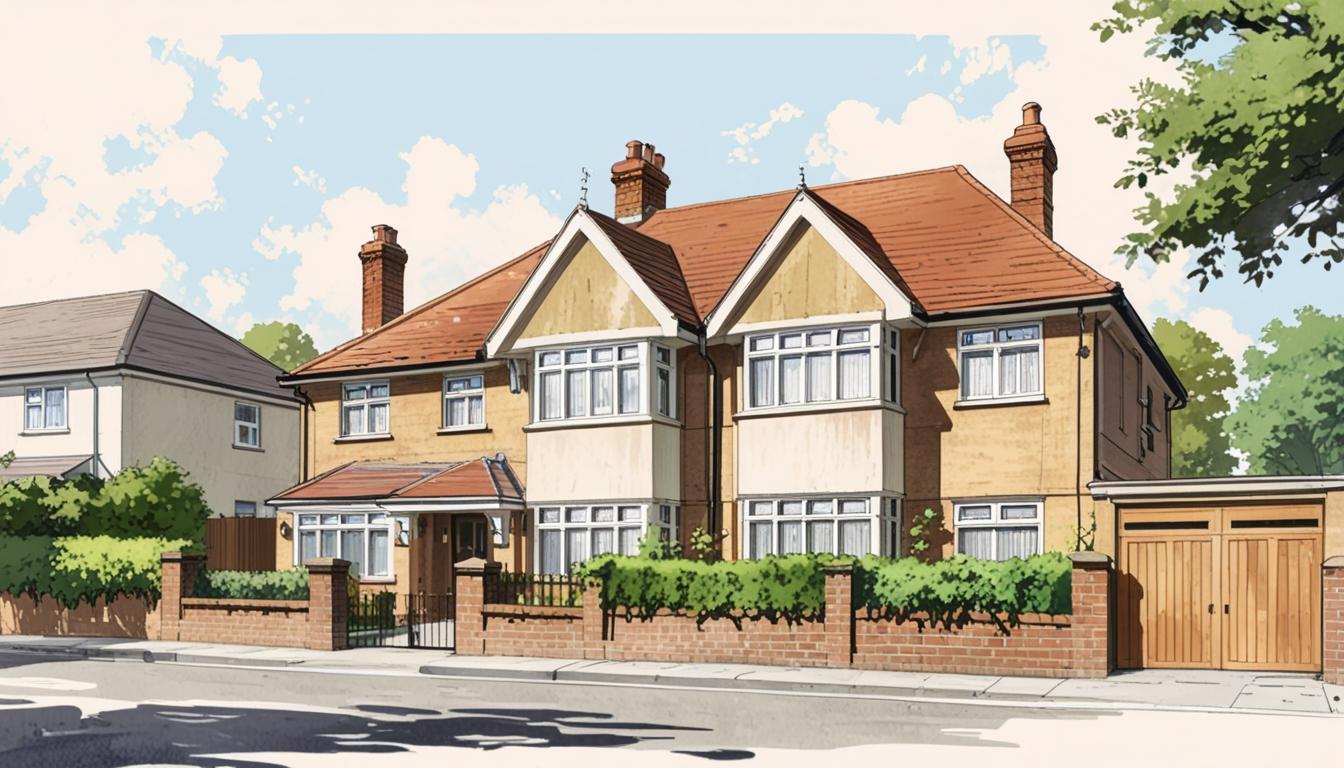Residents of a quiet residential area in Slough have expressed outrage following the Planning Inspectorate's decision to approve retrospective planning permission for a loft conversion that many locals believe is out of character for the neighbourhood. The property, which is currently operated as a care home, underwent significant modifications that were previously rejected by Slough Council. This approval has ignited concerns about future developments and the implications for local planning regulations.
In October, Slough Council had denied the application for several extensions, deeming them 'detrimental to the character, appearance and visual amenities of the surrounding area.' The council's stance was rooted in the concerns that the alterations would disrupt the aesthetic unity of the residential zone, particularly as Slough is home to areas designated as Residential Areas of Exceptional Character (RAEC). These classifications aim to preserve the unique architectural qualities of such communities, often restricting developments that may disturb the visual landscape.
Despite these initial refusals, owners Macadamia Support appealed the decision. The Planning Inspectorate ultimately sided with the applicants, arguing that the modifications did not significantly harm the property's visual coherence with the broader environment. The inspector stated that the changes constituted merely an 'alternative amalgam' of prior permissions granted for the property, highlighting that the final structure maintained significant features of a traditional residential home despite its altered silhouette.
However, local residents are far from convinced. Many describe feeling watched and disturbed by new side dormer windows that overlook their properties, disrupting their privacy and peace. One neighbour passionately articulated their frustration, stating, "The frequent switching of lights during the evening hours disrupts my sleep when my bedroom doors are open." This sentiment echoes throughout the community, with concerns surfacing about noise levels and general disturbances associated with the care home's operations.
Critics of the decision fear it sets a troubling precedent for the area. One local expressed the worry that this case will encourage other homeowners to bypass planning regulations, leading to uncontrolled developments and a degradation of the residential environment. "It's the precedent that it sets," they remarked, underscoring the collective apprehension among neighbours that the integrity of their community could be compromised.
The planning debate highlights broader issues within Slough's regulatory landscape. Earlier cases of planning enforcement have shown a reluctance from the council to permit retrospective adjustments without prior approvals, as illustrated by other residents who have faced legal action for unapproved extensions. In one instance, a homeowner was fined over £40,000 for illegally constructing an extension and subsequently renting it without necessary permissions. Such enforcement has often led to significant financial penalties and legal complications, raising questions about fairness in how planning applications are adjudicated.
As discussions continue, the Slough Borough Council has publicly expressed disappointment with the Inspectorate's ruling. A spokesperson stated, "The council is always disappointed when a Planning Inspector finds differently to the council’s planning decisions." This reflects a growing tension between local governance and overarching planning bodies that challenge community consensus on property developments.
Residents are now left grappling with the implications of this decision, questioning the effectiveness of local planning regulations and their capacity to manage development in a way that respects the character of their neighbourhood. With planning appeals becoming a common feature in Slough, the community anxiously watches as the evolving landscape of their homes continues to change in ways they feel are out of their control.
Source: Noah Wire Services
